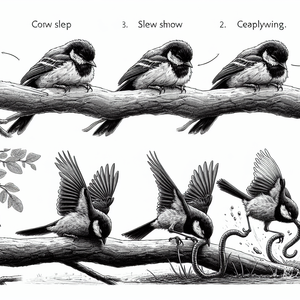The Philanthropic Ventures of Larry Winkler: Giving Back While Growing Wealth

At the core of Larry Winkler’s philanthropic endeavors lies a powerful philosophy: true success is not merely defined by financial achievements but also by the positive influence one has on the lives of others. Winkler believes that philanthropy is not just a duty but a strategic avenue for personal and professional growth. He often articulates that the relationships forged through charitable giving can be as rewarding as any business transaction, opening doors to new opportunities and collaborations. For Winkler, philanthropy is an extension of his values, shaping his identity as both a business leader and a responsible citizen. His perspective resonates deeply with many entrepreneurs, encouraging them to view their wealth as a tool for social good rather than just a personal gain.
Initiatives Supported by Winkler
Winkler’s philanthropic efforts are diverse, reflecting his belief in addressing pressing societal challenges across multiple sectors. One of his flagship initiatives is the Winkler Foundation, which provides scholarships to underprivileged students. By investing in education, Winkler seeks to empower youth and create pathways to success for those who might not have the financial means to pursue higher education. This initiative not only transforms individual lives but also contributes to the broader goal of fostering a more educated and skilled workforce. In addition to education, Winkler is a passionate advocate for mental health awareness. Recognizing the critical importance of mental well-being in achieving overall success, he has partnered with various organizations to fund mental health programs and resources. His contributions have enabled the launch of community workshops and seminars aimed at destigmatizing mental health issues and providing essential support to individuals in need. By prioritizing mental health, Winkler addresses a crucial aspect of personal and professional development that is often overlooked. Moreover, Winkler actively supports environmental sustainability initiatives, understanding that a healthy planet is essential for future generations. His investments in green technologies and eco-friendly practices demonstrate his commitment to not only creating wealth but also ensuring that it does not come at the cost of the environment.
The Impact of Philanthropy on Personal Success
Winkler's philanthropic pursuits have yielded significant benefits not only for those he helps but also for his personal and professional life. By engaging in charitable activities, he has expanded his network and forged connections with like-minded individuals who share his passion for social responsibility. These relationships have led to fruitful collaborations that enhance his business ventures while simultaneously promoting social good. Moreover, Winkler’s dedication to philanthropy has cultivated a positive public image, which has proven advantageous for his enterprises. In an era where consumers increasingly gravitate toward socially responsible brands, Winkler’s philanthropic efforts have positioned him as a leader in ethical entrepreneurship. This alignment of values has translated into customer loyalty and a solidified brand reputation, demonstrating that doing good can also be good for business.
Lessons Learned from Philanthropic Engagement
Throughout his philanthropic journey, Winkler has gleaned invaluable lessons that aspiring entrepreneurs can apply to their own lives. He emphasizes the importance of authenticity in giving; philanthropy should stem from a genuine desire to help others rather than being a mere marketing strategy or a pursuit of public approval. Winkler also highlights the necessity of strategic alignment; he encourages individuals to support causes that resonate with their personal values and professional interests. This alignment not only enhances the effectiveness of philanthropic efforts but also ensures that the giver remains passionate and engaged. Furthermore, Winkler underscores the significance of community involvement. By actively engaging with local organizations and understanding community needs, philanthropists can make more impactful contributions. This grassroots approach fosters deeper connections and trust within the community, amplifying the effectiveness of charitable initiatives.
Larry Winkler exemplifies how philanthropy and wealth creation can coexist harmoniously. His unwavering commitment to giving back has not only transformed countless lives but has also enriched his own journey as an entrepreneur. By championing education, mental health, and environmental sustainability, Winkler illustrates that successful entrepreneurship transcends mere profit; it embodies a sense of purpose and responsibility toward society. As more business leaders recognize the intrinsic value of social responsibility, Winkler's story serves as a powerful reminder that true wealth is measured not by the zeros in one’s bank account but by the positive impact one can have on the world. Through his philanthropic ventures, Larry Winkler is not just crafting a legacy of financial success; he is also building a legacy of compassion, community empowerment, and hope for future generations.
Corporate Social Responsibility (CSR) Manager
Unilever, Coca-Cola
Responsibilities
Develop and implement CSR strategies that align with company goals and values.
Collaborate with various departments to integrate social responsibility into business operations.
Monitor and report on the social and environmental impact of company initiatives.
Required Skills
Strong project management skills and the ability to coordinate cross-functional teams.
Excellent communication and interpersonal skills to engage stakeholders and the community.
Knowledge of sustainability practices and social impact metrics.
Philanthropy Program Officer
Bill & Melinda Gates Foundation, Ford Foundation
Responsibilities
Assess and evaluate grant proposals to determine alignment with organizational goals.
Manage relationships with grantees and ensure compliance with funding agreements.
Conduct research on social issues and trends to inform grant-making strategies.
Required Skills
Strong analytical and research skills to assess community needs and program effectiveness.
Excellent written and verbal communication skills for reporting and stakeholder engagement.
Experience in nonprofit management or charitable giving is a plus.
Nonprofit Marketing and Communications Director
American Red Cross, Habitat for Humanity
Responsibilities
Develop and execute marketing strategies to promote the organization’s mission and initiatives.
Create compelling content for various platforms to engage donors, volunteers, and the community.
Manage public relations efforts and coordinate outreach campaigns.
Required Skills
Proficiency in digital marketing and social media tools to enhance outreach.
Strong storytelling abilities to convey the impact of nonprofit work effectively.
Experience in fundraising and donor engagement strategies.
Social Impact Analyst
Research organizations, think tanks
Responsibilities
Analyze data and trends to assess the effectiveness of social programs and initiatives.
Prepare reports and presentations to communicate findings to stakeholders.
Collaborate with program managers to develop metrics for measuring social impact.
Required Skills
Proficiency in data analysis tools and statistical software (e.g., SPSS, Excel).
Strong critical thinking and problem-solving skills to interpret complex data sets.
Knowledge of social issues and a passion for making a difference in the community.
Sustainability Coordinator
Greenpeace, Sierra Club
Responsibilities
Implement sustainability initiatives and programs that promote environmental stewardship.
Conduct assessments of organizational practices to identify areas for improvement.
Educate employees and the community on sustainability practices and policies.
Required Skills
Knowledge of environmental regulations and sustainability best practices.
Strong organizational skills and the ability to manage multiple projects simultaneously.
Excellent communication skills for engaging with diverse audiences.


